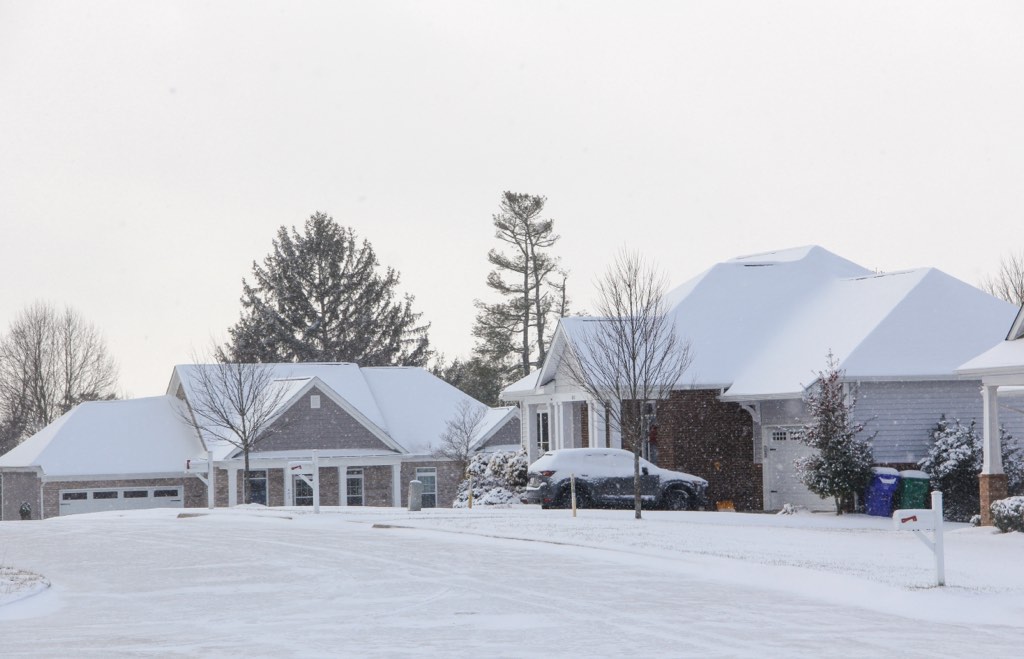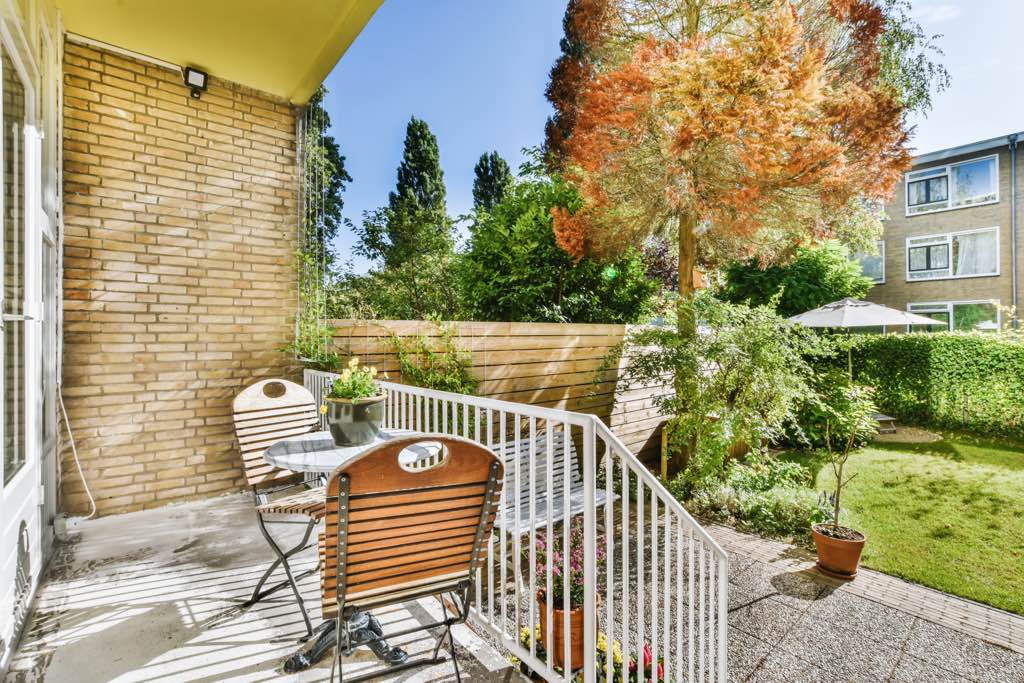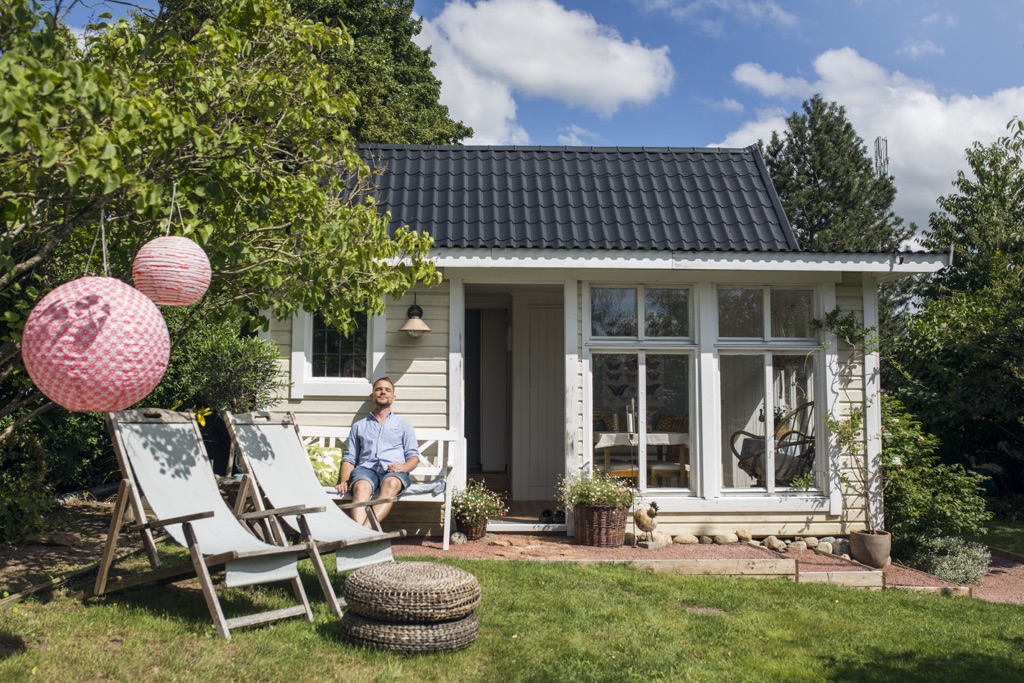As we brace for the approaching winter and the inevitable temperature drop, it’s vital to be well-prepared. This holds especially true when safeguarding your investment property against various potential issues concerning both tenants and weather. Implementing preventive measures not only mitigates the risk of winter-related damages but also cultivates a sense of security throughout the season. To aid in your preparation, Premier Property Management has curated a comprehensive list of the top 10 actions you can take to ready your property for the winter months.
1. Insulate Your Property
An essential aspect of preparing for winter is to thoroughly assess the insulation and efficiency of your properties. Spend time inspecting for air leaks and consider patching them up, while also evaluating the need for additional insulation in areas such as windows and entryways. This strategic approach serves a dual purpose: not only does it contribute to a reduction in energy costs, but it also plays a pivotal role in preserving the longevity of your furnace or heating system. By preventing overworking due to heat loss, this proactive step ultimately safeguards against premature wear and tear, ensuring a more sustainable and efficient heating system throughout the winter season.
2. Check Winter Performance

Before temperatures plummet, it’s crucial to check all heating systems to ensure they’re in good working order. With more time spent indoors during winter, there’s a higher chance of unexpected system failures due to increased appliance use. Be sure to also assess and reinforce your electrical system for the added demand. Consider installing smart thermostats—they not only cut costs but also help tenants and property managers track energy usage. These thermostats offer a dual benefit: reducing expenses and providing better control over energy consumption, benefiting both the property’s sustainability and the occupants’ comfort.
3. Check Your Pipes
When temperatures drop, the risk of pipes bursting significantly increases, potentially leading to substantial financial expenses. To prevent this, it’s essential to take proactive measures. Begin by draining outdoor hoses and pipes to avoid freezing and subsequent bursting. Winterizing non-heated pipes is equally important to safeguard against the cold. Equally critical is educating tenants on best practices to ensure pipes are not left without heat for extended periods, as this significantly raises the risk of pipe damage. A burst pipe can result in extensive and costly repairs, making preventative measures indispensable to avoid such financial burdens. By implementing these precautions, you not only protect your property from potential damage but also mitigate the risk of incurring significant repair expenses due to burst pipes.
4. Inspect Your Roof
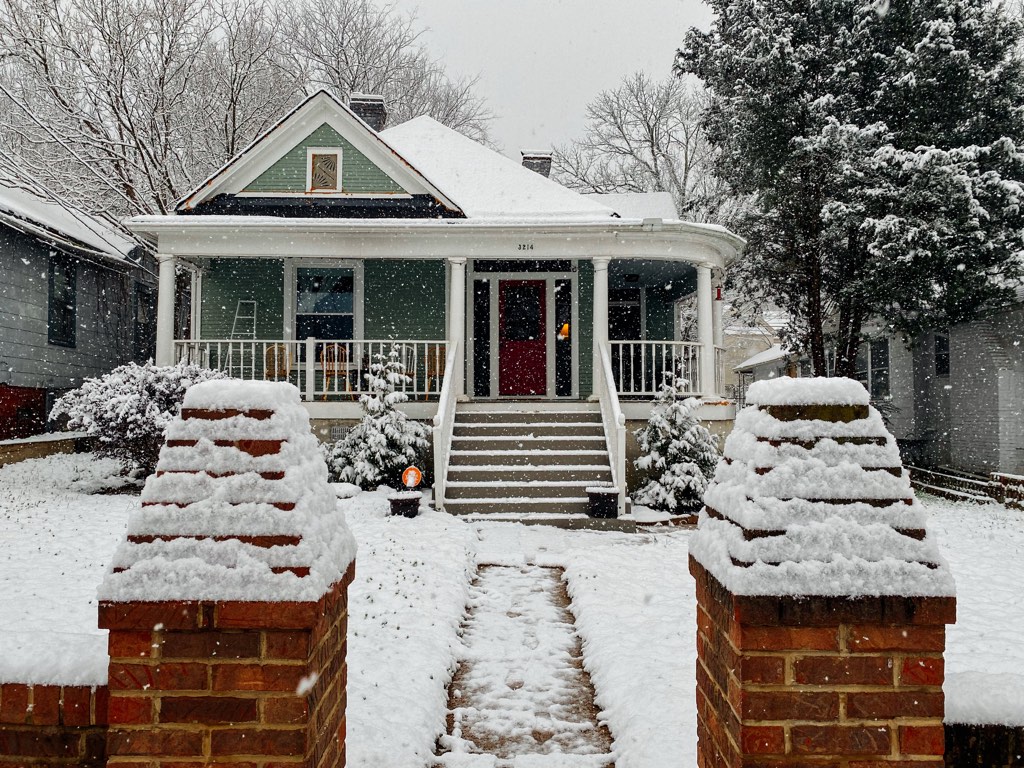
Snow can put a lot of strain on roofs, especially if they’re already damaged. To avoid problems, check your roof for gaps, leaks, and overall structural integrity. Make sure it’s ready to handle heavy, wet snow. Strengthening your roof before winter sets in is crucial to prevent potential damage. By ensuring its solidity and addressing any issues, you’ll avoid leaks and structural problems, saving yourself from costly repairs due to the extra weight of snow on a weakened roof.
5. Take Fire Prevention Steps
Ensuring fire safety during winter is paramount due to increased fire risks. As the demand for heat rises, so do potential dangers from electrical surges and fireplace usage. Start by checking and changing the batteries in smoke detectors to maintain their functionality. It’s crucial to remind tenants about fire evacuation procedures. Additionally, review safety guidelines for candles, fireplaces, Christmas trees, and electrical lights with tenants to minimize fire hazards. These proactive measures significantly enhance safety, protecting the property and its occupants during the winter season.
6. Prep Your Property
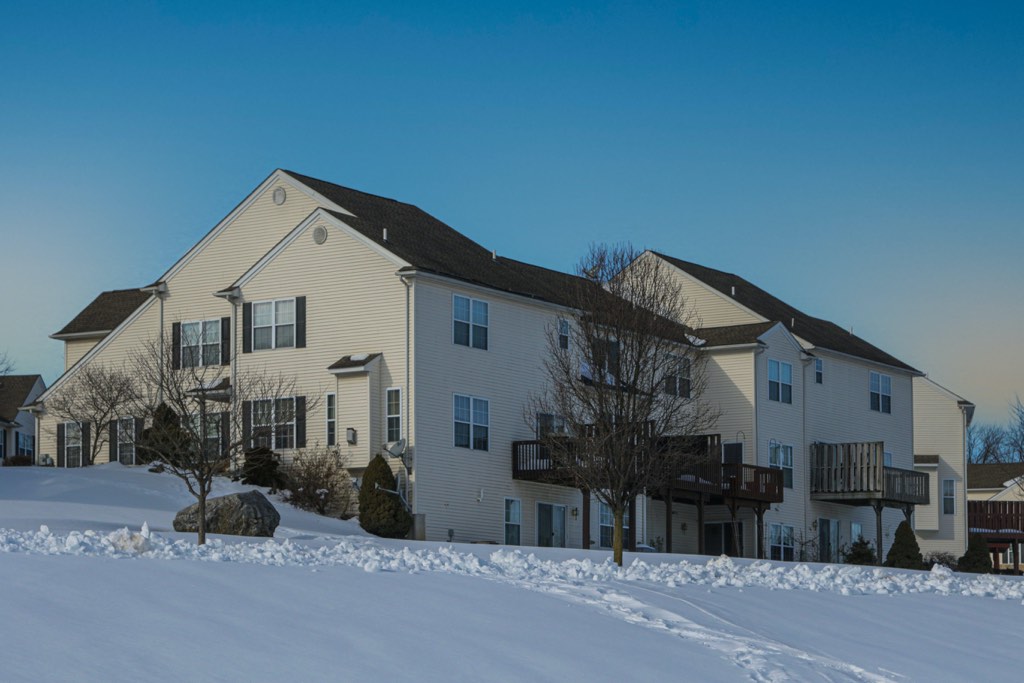
Address potential hazards before the snow arrives to ensure a secure and well-maintained property. Start by checking that gutters are securely attached and free from debris. Trimming dead branches is equally important to prevent potential hazards during heavy snowfall. Taking these proactive steps helps fortify your property against weather-related risks, ensuring a safer and more secure environment for both your property and its inhabitants during the winter months.
7. Establish Snow Removal Policies
Establishing clear and concise snow removal policies within your property leases is essential for effective property management, especially in regions prone to snowfall. It’s crucial to outline these policies in your lease agreements, defining responsibilities for both property managers and tenants. Communicate and remind tenants of these snow removal guidelines, emphasizing the importance of compliance. Equally important is the timely execution of your snow removal duties. Consistently upholding your commitment to promptly clear snow from communal areas or specifically designated zones not only ensures safety and accessibility but also reflects a commitment to providing a well-maintained and safe living environment for your tenants.
8. Establish Holiday Decoration Policies

Holiday decorations are essential to the festive spirit, but ensuring their safe display is equally crucial in maintaining a secure living environment. Encourage the use of battery-powered lights to diminish fire hazards posed by electrical decorations. Communicate explicit guidelines regarding where decorations are permitted within the property. Clearly outlining these spaces helps prevent potential damage or safety hazards. By setting specific boundaries for decorations, property managers can ensure a joyful and safe environment for tenants while minimizing the risk of accidents or property damage during the holiday season.
9. Prepare Tenants For Emergencies
Establishing clear protocols and guidelines for tenants in the event of emergencies is a fundamental aspect of property management. It’s crucial to equip tenants with the necessary information and procedures to navigate various emergencies, including power outages, fires, and other unexpected situations. Provide tenants with an emergency plan with steps to follow and important contact information. Conduct regular drills or informational sessions to ensure they understand these protocols effectively. Encouraging tenants to be proactive in emergency preparedness not only promotes their safety but also fosters a sense of security and readiness within the property community.
10. Check Your Chimneys
Before the winter season sets in, property managers should conduct a thorough inspection of chimneys to mitigate fire hazards and ensure tenant safety. Additionally, it’s crucial to inform tenants about the proper usage of chimneys. Share guidelines on safe and responsible chimney use, such as the importance of using only seasoned wood, keeping a protective screen in place, and avoiding the disposal of any flammable materials. Educating tenants about these safety practices not only safeguards the property but also promotes a secure and worry-free living environment during the winter months.
Baltimore’s Property Management Experts
As the winter months approach, property management presents its own unique set of challenges. Yet, with Premier Property Management, your investments are in expert hands, providing peace of mind. Our dedicated team manages all aspects, from thorough tenant screening to efficient rent collection and professional maintenance. If you seek comprehensive property management services for your investments, contact Premier Property Management today for a proactive and reliable solution.
